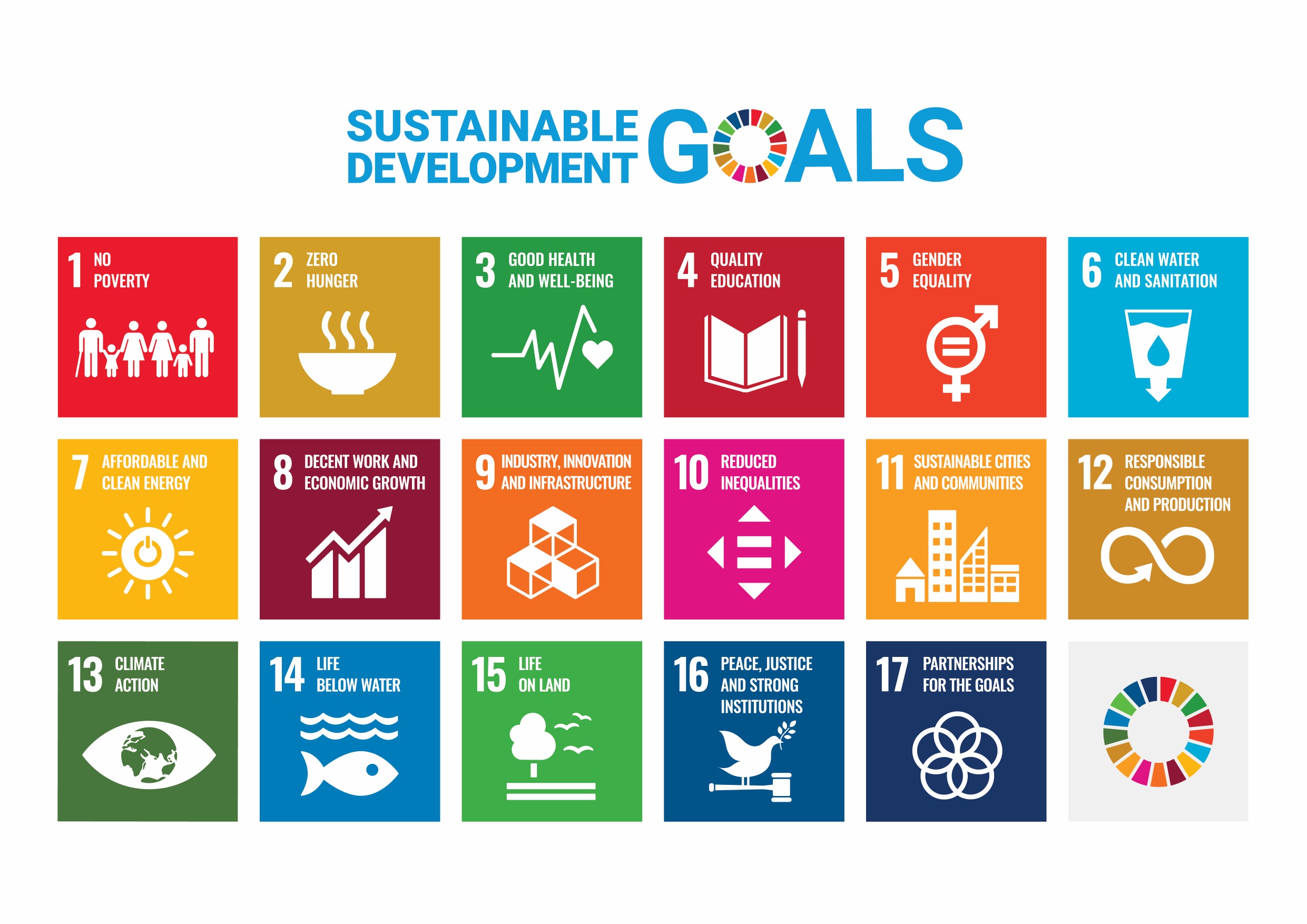Table of Contents
Sustainable Development Goals and Strategies
The most important sustainable development strategies you should know are Germany’s Energiewende Plan and the United Nations’ Sustainable Development Goals. Germany will follow these crucial environmental goals and strategies in the next 25 years. It is important to know and understand them not only when you want to set up your operation center in Germany, but also to better understand Germans as a nation and learn what they value.
Energiewende Plan
Germany’s Energiewende plan aims to significantly ramp up renewable energy production from sources like wind and solar power by 2050. At the heart of the program is a new CO2 pricing scheme for the transport sector and heating buildings. Making emitting carbon dioxide more expensive will encourage companies to invest in sustainable energy solutions.
Under the Climate Action Programme 2030 and the new Climate Action Act (Klimaschutzgesetz), the German government has made a binding undertaking to:
-
01
Reduce greenhouse gas emissions by 55% by 2030.
-
02
Phase out the use of coal to generate electric power.
-
03
Restructure mobility into a climate-friendly mobility.
United Nations’ Sustainable Development Goals
In 2025, Germany will continue strengthening its commitment to sustainability in economic, social, and environmental areas, in line with the United Nations’ Sustainable Development Goals (SDGs).

The government supports eco-friendly business practices through subsidies, tax incentives, and grants, focusing on reducing carbon emissions, boosting energy efficiency, and promoting renewable energy.
Social sustainability remains a priority, with policies for fair wages, decent working conditions, and inclusive employment. Support programs help small and medium companies adopt these practices without heavy costs. Encouraging digital transformation aims to improve efficiency and reduce resource use.
For business owners, Germany’s sustainability efforts provide opportunities to innovate, reduce costs, and improve brand reputation by aligning with the sustainability values of customers and stakeholders.
Sustainability in Germany – Understanding Their Values
Eco-conscious consumers in Germany highly value sustainability, transparency, and ethical practices. This focus drives consumer preference toward eco-friendly products that reduce carbon footprints, emphasize renewable energy, and uphold resource efficiency.
Additionally, fair trade practices resonate strongly with a demand for ethically produced goods that ensure fair wages and safe working conditions. For business owners looking to enter the German market, aligning with these values is very important. Companies that demonstrate genuine commitment to sustainable and fair trade practices can better attract consumers, build trust, and establish a competitive edge in a market where responsibility and transparency are key.
How to Attract Eco-conscious German Customers?
1. Sustainable Production
If your business uses sustainable production methods, make sure to showcase it on your website and product pages. Highlight practices like running your facilities on renewable energy sources such as solar or wind power, implementing waste reduction initiatives like recycling and repurposing materials, and enhancing resource efficiency through advanced manufacturing techniques. Sharing these efforts not only informs your customers but strengthens their connection to your brand and commitment to the environment.
2. Eco-Products
Customers are drawn to products made from natural, recyclable, or biodegradable materials and actively avoid those with excessive plastic or harmful chemicals. If your products could use an eco-friendly upgrade, this might be the perfect moment to innovate. Consider implementing sustainable packaging or shipment solutions to align with customer values and make a positive impact on the environment.
60% of Germans consider a product’s sustainability when shopping.
3. Corporate Social Responsibility
CSR initiatives like participating in community projects or offsetting carbon emissions can attract environmentally conscious consumers by showcasing a company’s genuine commitment to positive social and environmental impact. For example, engaging in local sustainability efforts or contributing to green spaces signals a dedication to community well-being. Carbon offset programs, such as funding reforestation or renewable energy projects, demonstrate a brand’s commitment to reducing its environmental footprint.
In Germany, brands like BMW have gained attention for their CSR by investing in carbon neutrality through green energy and emission reduction strategies. Another example is Bosch, which has committed to achieving carbon neutrality across its global operations and supporting renewable energy projects.
4. Leveraging Local and Organic Products
German consumers have a strong preference for local and organic products, driven by a desire for high-quality items with a smaller carbon footprint. Labels such as organic and non-GMO carry significant weight, particularly for food and skincare products, as they align with health and environmental values. To appeal to this market, businesses can prioritize locally sourced materials, which reduce transportation emissions and showcase support for local suppliers. Highlighting these efforts on product labels and marketing can help build trust and connection with German consumers.
5. Circular Economy Models
The concept of the circular economy focuses on minimizing waste by keeping products and materials in use for as long as possible through recycling, repair, and resale programs.
Brands can tap into this mindset by adopting circular strategies such as offering product take-back and recycling programs, repair services to extend product life, and resale or refurbished product options. By highlighting these circular strategies in their offerings, brands can engage consumers, build loyalty, and establish themselves as leaders in sustainability in Germany.
6. Sustainability Certifications and German Sustainability Code
Certifications like Fair Trade, EU Ecolabel, and Blue Angel play a key role in building trust with eco-conscious consumers. These labels guarantee that products meet strict environmental and ethical standards, giving buyers confidence in their choices. Fair Trade ensures fair wages and safe working conditions, while the EU Ecolabel and Blue Angel focus on eco-friendly production and low environmental impact. For consumers who prioritize sustainability, these certifications can be a deciding factor when choosing between products.

The German Sustainability Code (DNK) helps companies show their commitment to sustainability by reporting on environmental and social practices. Following the DNK boosts product attractiveness by building trust and transparency. It is not required while operating in Germany, but it will help your brand win this market.
Germany Sustainability: Don’t Greenwash
Greenwashing, or making false or misleading claims about sustainability, poses significant risks to a brand’s reputation. If consumers or watchdogs discover that a company’s eco-friendly claims are exaggerated or untrue, trust is lost, leading to damaged credibility and potential backlash. To avoid this, companies should ensure their green claims are genuine by adhering to recognized standards, obtaining reputable certifications, and being transparent about their sustainability practices. It is hard to get trust, but it is even harder to rebuild it.
In Germany, Sustainability Plays an Important Role
Germany’s market values sustainability, with many consumers preferring eco-friendly, fair-trade, and locally sourced products. Brands can boost trust and attract these consumers through sustainable practices like circular economy, eco-packaging, and certifications. However, greenwashing can severely damage reputation, so companies must ensure genuine and transparent sustainability claims.
We have to remember that not all Germans prioritize sustainability. Popular Asian platform Temu, known for unsustainable practices, proves that a business doesn’t need to be eco-friendly to succeed in the German market. If a company isn’t truly sustainable, it’s better not to present itself as such, especially in Germany’s discerning market.


